English
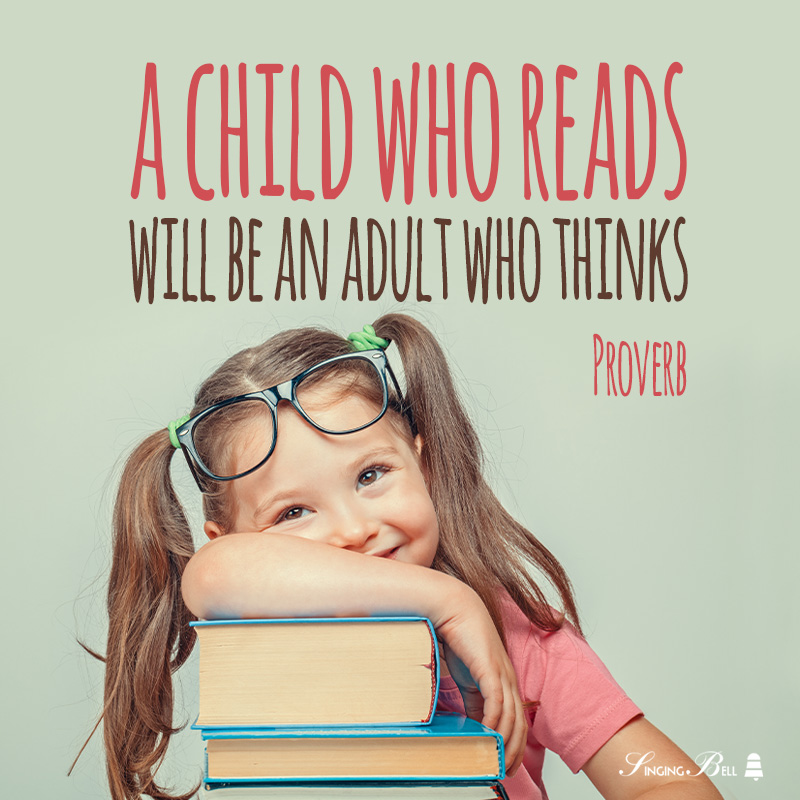
Our intent for the curriculum in English , its implementation and impact
As with all subjects at St Paul’s we want children to develop the characteristics of learners outlined in DESIRE. We want children to love learning and be totally immersed in different worlds and times and to be excited about what they are learning. We strive to ensure that girls and boys all attain the highest standards possible.
We are trying to foster life-long learning behaviours through: independence, choice, collaboration and personal discovery.
Our English curriculum has a clear purpose, an intent
English has an important place in education and in society. A high-quality education in English will teach pupils to speak and write fluently so that they can communicate their ideas and emotions to others and through their reading and listening, others can communicate with them. Through reading in particular, pupils have a chance to develop culturally, emotionally, intellectually, socially and spiritually. Literature, especially, plays a key role in such development. Reading also enables pupils both to acquire knowledge and to build on what they already know. All the skills of language are essential to participating fully as a member of society; pupils, therefore, who do not learn to speak, read and write fluently and confidently are effectively disenfranchised.
Implementation
Aims
At St Paul’s we support the aim for English expressed within the National Curriculum: 'to promote high standards of literacy by equipping pupils with a strong command of the spoken and written word, and to develop their love of literature through widespread reading for enjoyment.'
Spoken Language
This underpins the development of reading and writing and is vital for pupils' development across all aspects of the school curriculum. We provide children with a wide range of opportunities to hear and use good quality vocabulary, focusing also on variety. Children are encouraged to ask questions, discuss in pairs and groups and to use conventions for discussion as well as debate. Opportunities for drama are sought throughout the curriculum as it is recognised that the skills that are developed through this medium are unique. We are currently focussing on Oracy. Teachers are receiving training in this field and all children in the school are learning a poem off by heart, x6 times a year, to perform to the rest of the school.
READING
Quality children's literature at the heart of all learning.
Throughout Reception, Key Stage 1 and 2 we teach reading using Bug club books. These are closely linked with the children’s knowledge (phase) of phonics which is taught using the Bug Club scheme. Children engage with high quality picture books, novels, poetry and non-fiction through a wide range of teaching approaches.
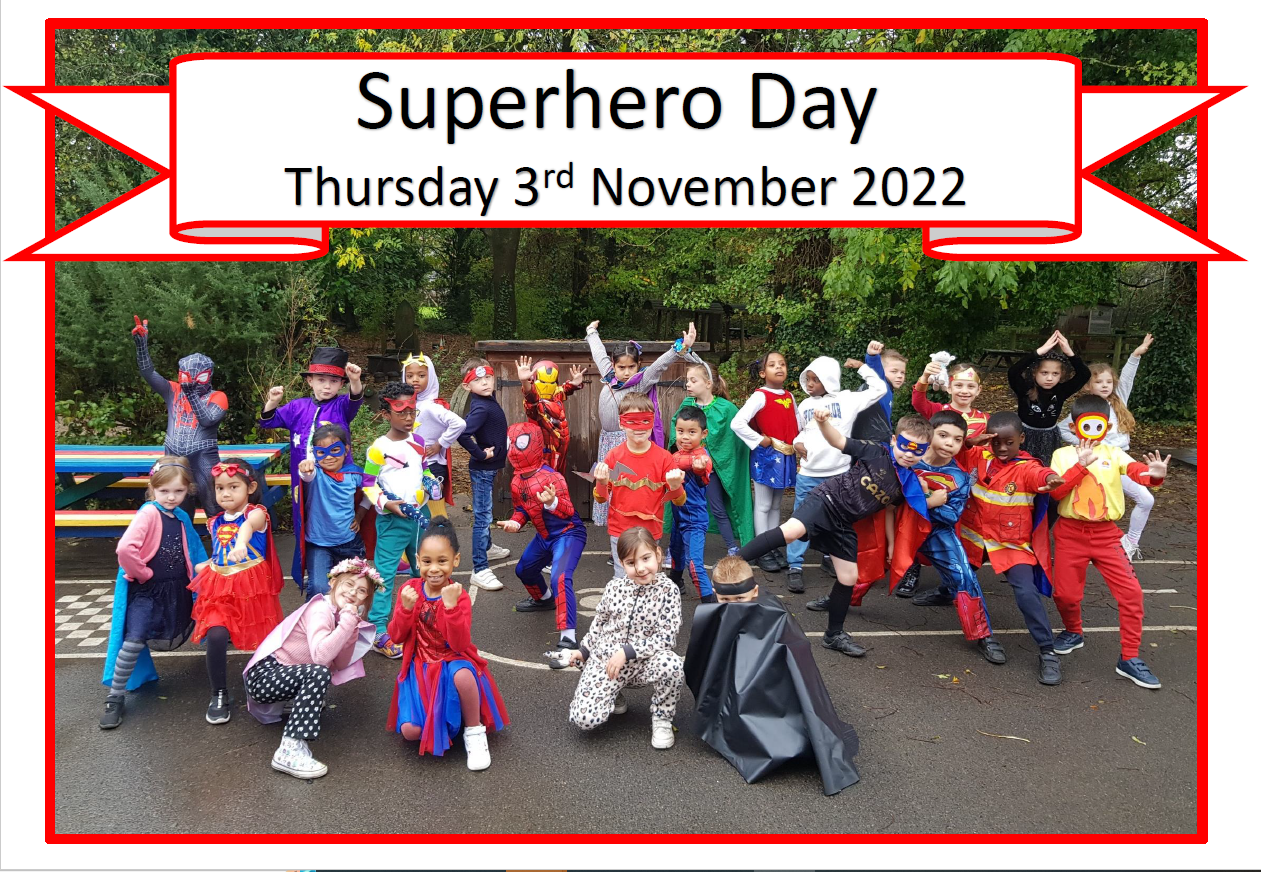
Skills such as recapping on what children have read, predicting what might happen next and inviting opinion as to why, are vital to children progressing as readers and these skills are encouraged from our earliest readers.
Whole class reading books are introduced in LKS2 and very often linked to the topic children are studying.
Comprehension skills are taught from KS1 onwards.
As ever, reading for pleasure is paramount and all children are given time to read quietly and independently. We have a superb library with a volunteer librarian who keeps the books and systems working well. She informs the English Lead if more resources are needed.
Reading and Phonics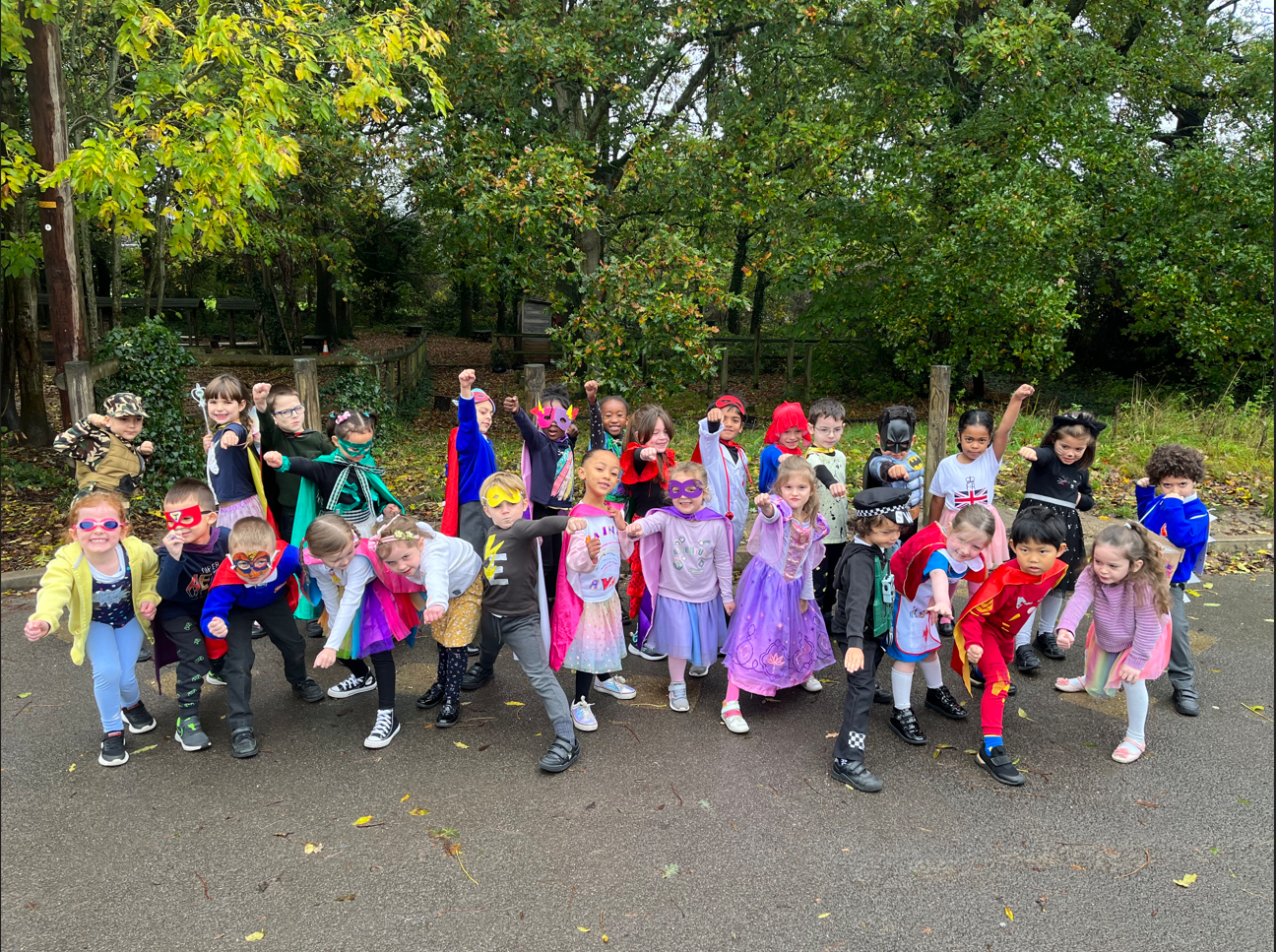
Phonics and reading are core elements of our curriculum at St Paul’s. We follow the Bug Club synthetic phonics programme throughout Foundation Stage and Key Stage 1 to teach the children essential phonic skills that are required to successfully read and spell. Our children receive high quality phonic teaching to ensure that our children are well placed to read and spell words with fluency and confidence.
The children also practise their reading with fully decodable books (Bug Club) that are chosen by the teacher and contain only sounds which the children have been previously taught. The children are given reading books have been carefully matched with a decodeable Bug Club book, then from a Bug book which introduces many of the tricky words and unfamiliar words. The books that the children read from this scheme are also available on-line and they can complete little ‘quizzes’ which are also a way of assessing their comprehension.
We supplement these with a range of other books. We ensure that children enjoy a range of fiction/non-fiction and poetry texts. Children are able to choose and take home school library books weekly.

To ensure comprehension skills are learned, each child from Y2-Y6 has a comprehension lesson x1 weekly and also a comprehension book which forms part of their homework. Time is spent looking at the homework weekly.
Writing
The development of children's ability to communicate in writing is given high priority and we achieve excellent standards in this important skill.
Writing for purpose and for an audience is important and evident in planning. We ensure children know ‘why’ they are writing: to inform, to entertain, to explain, or to persuade.
High standards of writing are the expectation for all subjects, not just in English.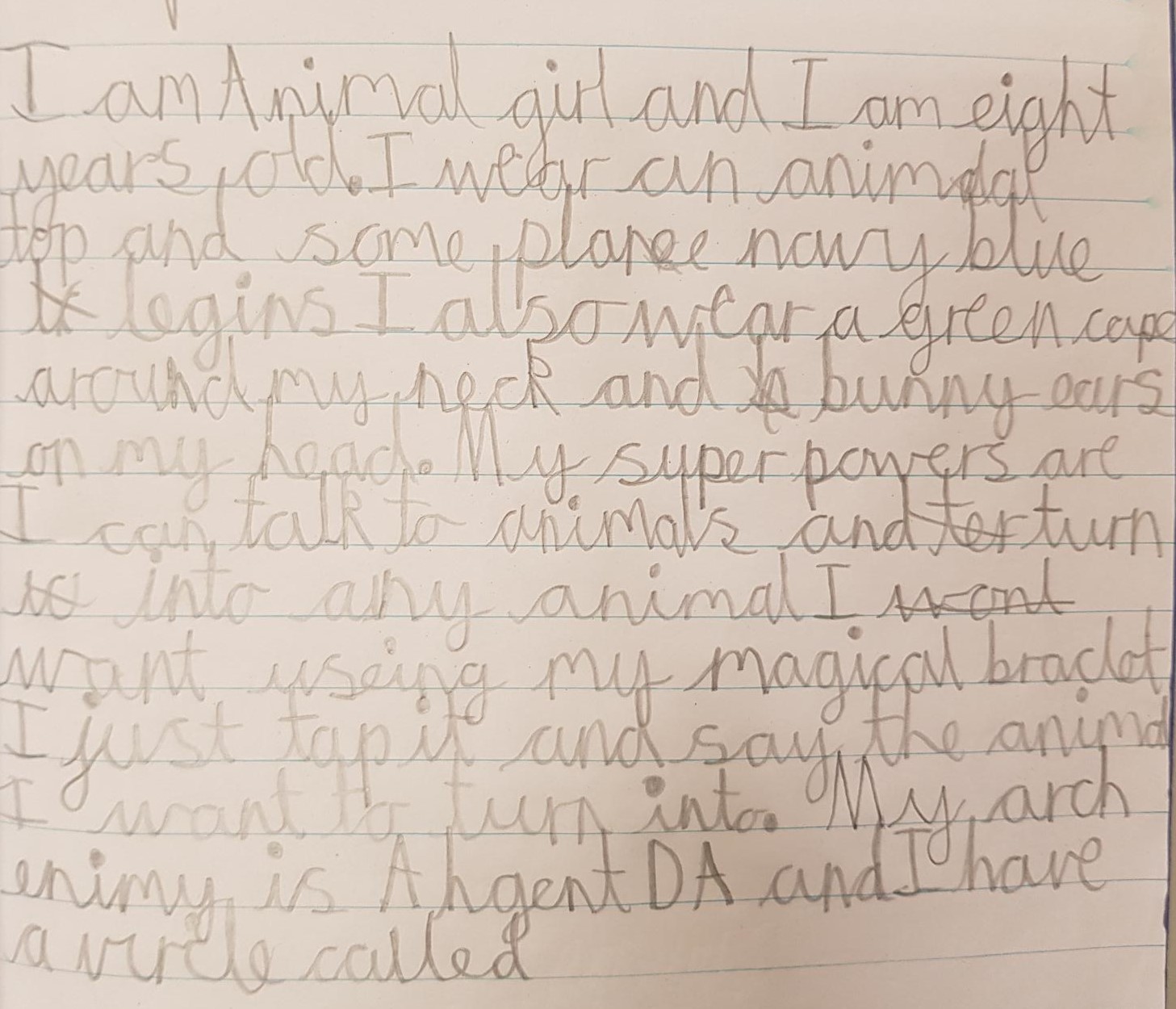
Learning to write is a complex process that involves a variety of skills but is an extremely powerful medium. It can last longer than the spoken word and can, and often has, been immortalized. We encourage all our children to become “authors” in their own right.
Initially, a child needs to be able to form the letters needed and then be able to express one’s ideas using these letters. Through shared and guided writing opportunities, we equip children to develop the skills of writing clearly and legibly. When the child is confident with these basic skills, they will work towards being able to write with a greater sense of purpose and learn to organize their writing according to this purpose. Children are equipped with the necessary tools to do this, being given daily opportunities to focus on spelling and/or grammatical structures.
Our children work using a variety of real texts – the link between reading and writing is made very clear.
Handwriting
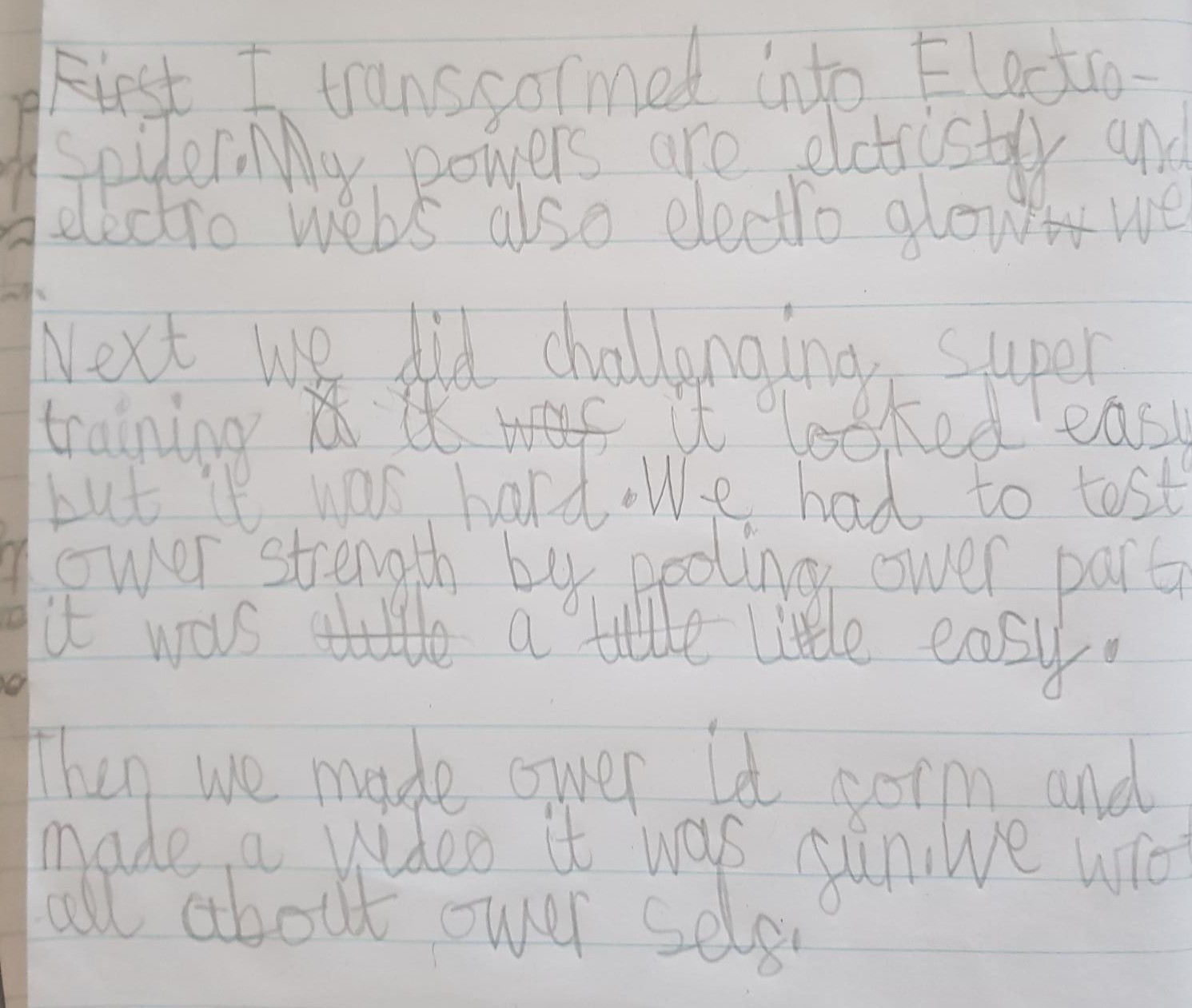 We strive for our children to form correct letter formations, joining and good handwriting habits so that they can write fluently and legibly by the end of KS2. Children are introduced to cursive style writing from early years. This is taught with a sequential and progressive approach with teachers and TAs modelling the handwriting style throughout the school.
We strive for our children to form correct letter formations, joining and good handwriting habits so that they can write fluently and legibly by the end of KS2. Children are introduced to cursive style writing from early years. This is taught with a sequential and progressive approach with teachers and TAs modelling the handwriting style throughout the school.
We believe that children’s self-esteem and pride in their work can be raised by good quality presentation.
To teach children to write with a flowing hand which is legible, swift and pleasant to look at.
To enable children to develop their own style of handwriting as they progress through Key Stage 2.
To support the development of correct spelling and to aid in the elimination of letter reversals by the learning of word patterns and the correct joining of letters.
To ensure that children of differing abilities are provided with appropriate and achievable goals.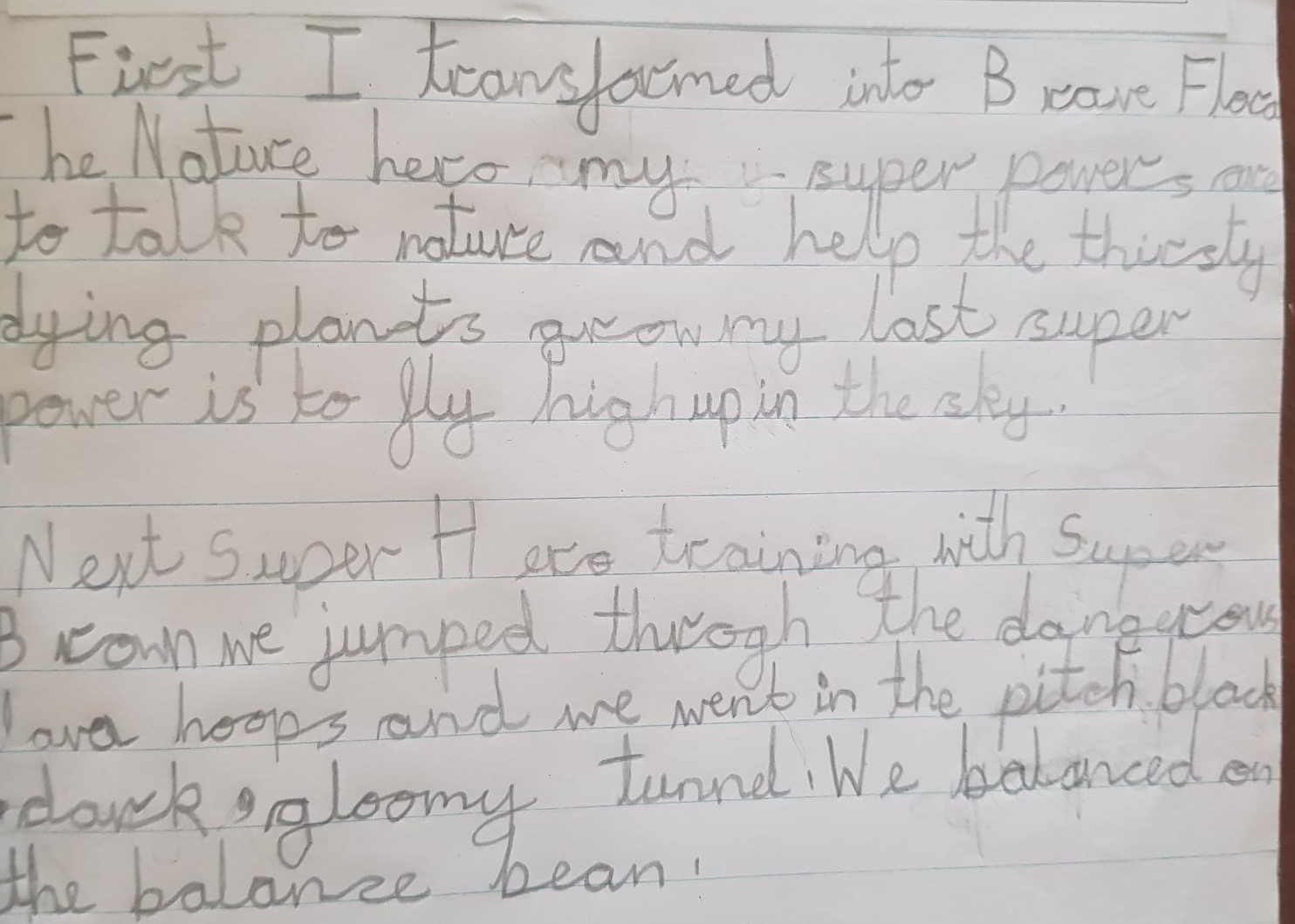
To assist children in taking pride with the presentation of their work.
During lessons, we ensure that children sit, position their paper/book and hold their pen/pencil correctly using their other hand to hold their work firmly. It is important that in the Early Years and at Key Stage 1, children are observed closely during the lesson to ensure that letter formation is correct and corrected if needed. In addition to specific handwriting lessons children are expected to apply their learning in their exercise books and to show care for the presentation of their work.
Grammar, Punctuation and Spelling
Grammar, Punctuation and Spelling strategies are taught explicitly in interactive and investigative sessions.
Pupils are taught to recognise which strategies they can use to improve their own spelling.
Pupils are encouraged to apply learnt strategies to their independent writing.
The teaching and learning of grammar and punctuation is embedded within the English teaching sequence. This means, grammar and punctuation skills and knowledge are built into a sequence of preparatory work which is then applied within longer pieces of writing at the end of the teaching sequence.
As they become more confident, children are encouraged to check spellings using a dictionary and to expand their vocabulary using the thesaurus.
At St Paul’s School we aim for our pupils to become fluent and effective writers. Accurate use of grammar, punctuation and spelling (GPS) is a means to that end. We use the National Curriculum 2014 as a basis for teaching Grammar, Punctuation and Spelling by introducing patterns or conventions and continually practising those already introduced.
D – DETERMINATION
E - ENQUIRY
S - STAMINA
I - INQUISITIVENESS
R - RESILIENCE
E - ENJOYMENT
